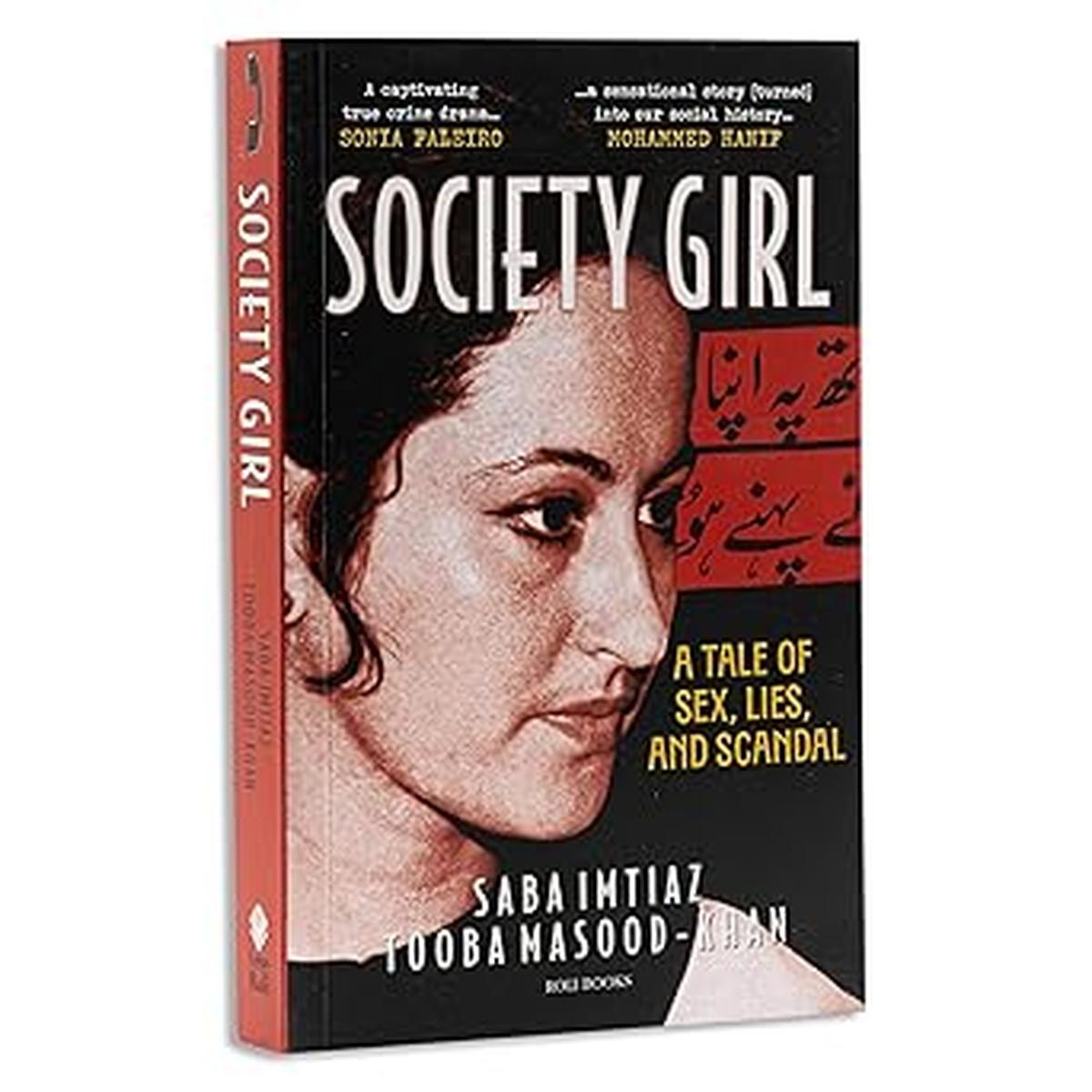
It is easy to see why the decision to write a book instead became so tempting.
| Photo Credit: Getty Images/iStockphoto
In Society Girl, journalists Saba Imtiaz and Tooba Masood-Khan foreground a sensational case in Pakistan that remains unresolved to this day.
It is October 1970. Saiyid Mustafa Hasnain Zaidi, a 40-year-old poet and civil servant, married with children, is found dead in his house in Karachi. A minor socialite, Shahnaz Gul, married with children, is found unconscious next to him. The “first jet-set murder case”, as the Associated Press termed it, sends Pakistan into a tizzy and gives rise to unsubstantiated rumours and malicious gossip. When all kinds of theories — from the plausible to the absurd — are put forth by the public and the media alike, the police, which botch the initial investigation, feel all the more compelled to provide answers.
In their introduction, Imtiaz and Masood-Khan say that they initially planned to write a longform piece on the case that they both stumbled upon separately. “But we quickly learned that this wasn’t easy as we thought,” they write. “The story didn’t seem to hold up and had become overshadowed by the circumstances leading up to Mustafa’s death, instead of how he had died.”
It is easy to see why the decision to write a book instead became so tempting. While it is clear from the start that there is no resolution in the case, Imtiaz and Masood-Khan use it to explore various aspects of 1970s Pakistani society: the lives of the elite, who party and entertain endlessly; the workings of a voyeuristic media; the patriarchal lens from which the entire episode is reported and investigated; and the grave socio-political tensions that recede to the background because of a brutal regime aided by a pliable press.
Wild rumours
This dissection of a society caught between tradition and modernity makes for an engaging read, but the book suffers from overwriting. About the Profumo affair that shook British society more than a decade earlier, the authors write, “It blew up into a national security crisis, and a lurid scandal, revolving around sex, extramarital affairs, women and politics, and the idea of morality.” Just a few paragraphs later, they reiterate: “Christine Keeler became an incredibly notorious figure — a woman who had slept with influential men, and embroiled sex and morality into politics and national security affairs.” The words ‘morality’ and ‘sex’ are used copiously in the book. Elsewhere, the authors also spell out the wild rumours about Mustafa’s escapades in bed. While their intention is to underline the callousness of the media, they run the risk of getting trapped in the very sensationalism that they criticise. And when they meander, which they often do by offering anecdotes about all those in power in Pakistan, the case becomes a footnote.
The Zaidi-Gul case burst into the headlines at a time when there was little known about mental health. Imtiaz and Masood-Khan are at their best when they research and write with sensitivity about Mustafa’s struggles with depression in a society that scoffed at or ignored his condition. They also give the complex, vilified Gul a voice and space. This empathy and female gaze are essential, especially since a man and woman are always judged differently during any torrid public scandal.
Society Girl
Saba Imtiaz, Tooba Masood-KhanRoli Books₹595
radhika.s@thehindu.co.in
Published – September 05, 2025 06:15 am IST

